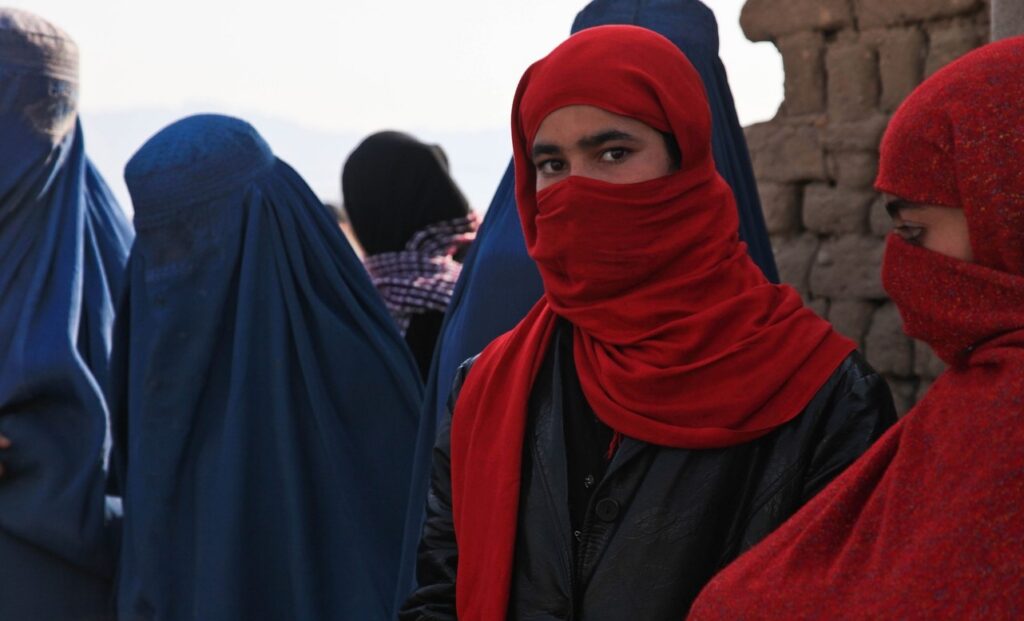Why are Afghan Women Excluded from Upcoming UN Meeting with Taliban?
Human rights organizations slammed the United Nations for agreeing to a meeting with the Taliban and envoys from 22 countries in Doha, Qatar next week without the presence of women representatives.
Human Rights Watch Executive Director Tirana Hassan said that, in the face of the Taliban’s tightening repression of women and girls, the U.N. plans to hold a meeting “without women’s rights on the agenda or Afghan women in the room are shocking.”
Amnesty International Secretary General Agnes Callamard said, “The credibility of this meeting will be in tatters if it doesn’t adequately address the human rights crisis in Afghanistan and fails to involve women human rights defenders and other relevant stakeholders from Afghan civil society.”
The U.N. reportedly made concessions to the Taliban to ensure their attendance, including preventing the participation of Afghan women and removing the issue of women’s rights from the agenda of the meeting.
U.N. special envoy Roza Otunbayeva defended the decision during a press conference on Friday.
As noted by AP, the meeting is the third U.N.-sponsored gathering on the Afghan crisis in Doha. The Taliban weren’t invited to the first, and Secretary-General Antonio Guterres said they set unacceptable conditions for attending the second in February, including demands that Afghan civil society members be excluded from the talks and that they be treated as the country’s legitimate rulers.
Afghanistan is now categorized by the U.N. as the most repressive country on earth for women. After initially promising a more moderate stance on women’s rights, the Taliban issued a series of measures in the year after taking power that have effectively banned women from the public sphere, including stripping women of their right to work and girls of their right to most education.
Last week, UK Political Counsellor Fergus Eckersley said at the UN Security Council meeting on Afghanistan that “while it is welcome that the Taliban have signaled their intention to attend this meeting in Doha, they must also show their intention to change how they are acting and to listen to the concerns of the Afghan people.”
Eckersley called on the international community to “remain united and clear on the urgent need for the Taliban to meet their obligations and reverse all polices restricting human rights and fundamental freedoms in Afghanistan, not least for women and girls. This includes the Taliban’s decree banning girls from secondary school, now over 1,000 days since its pronouncement.”
In March, on International Women’s Day, Special Rapporteur on the situation of human rights in Afghanistan, Richard Bennett, called on the Taliban to release women human rights defenders.
“I reiterate my appeal to the Taliban to respect all the human rights of women and girls in Afghanistan, including to education, work, freedom of movement and expression, and their cultural rights, and I urge the meaningful and equal participation of Afghan women and girls in all aspects of public life,” Bennett said.
He demanded that the Taliban “immediately and unconditionally release all those who have been arbitrarily detained for defending human rights, especially the rights of women and girls.”
The human rights situation in Afghanistan, often described as “gender apartheid,” significantly contributes to the Taliban’s continued status as a pariah government.
This context underscores the deep sense of betrayal felt by many women’s rights activists following the U.N. decision to not only invite the Taliban to the upcoming conference but also to make concessions that undermine women’s rights to secure their participation.
This exclusion of women from such an important meeting exemplifies the intrinsic and unresolved tension within the international system: the need for engagement between governments and the moral imperative to exert pressure on those violating human rights.
The U.N. decision to engage with the Taliban may be an attempt to explore the potential efficacy of this approach. However, this strategy remains a high-risk gamble and offers little solace to Afghan women suffering under the current regime.
Image: Pixabay
Become a Patron!
Or support us at SubscribeStar
Donate cryptocurrency HERE
Subscribe to Activist Post for truth, peace, and freedom news. Follow us on SoMee, Telegram, HIVE, Minds, MeWe, Twitter – X, Gab, and What Really Happened.
Provide, Protect and Profit from what’s coming! Get a free issue of Counter Markets today.




